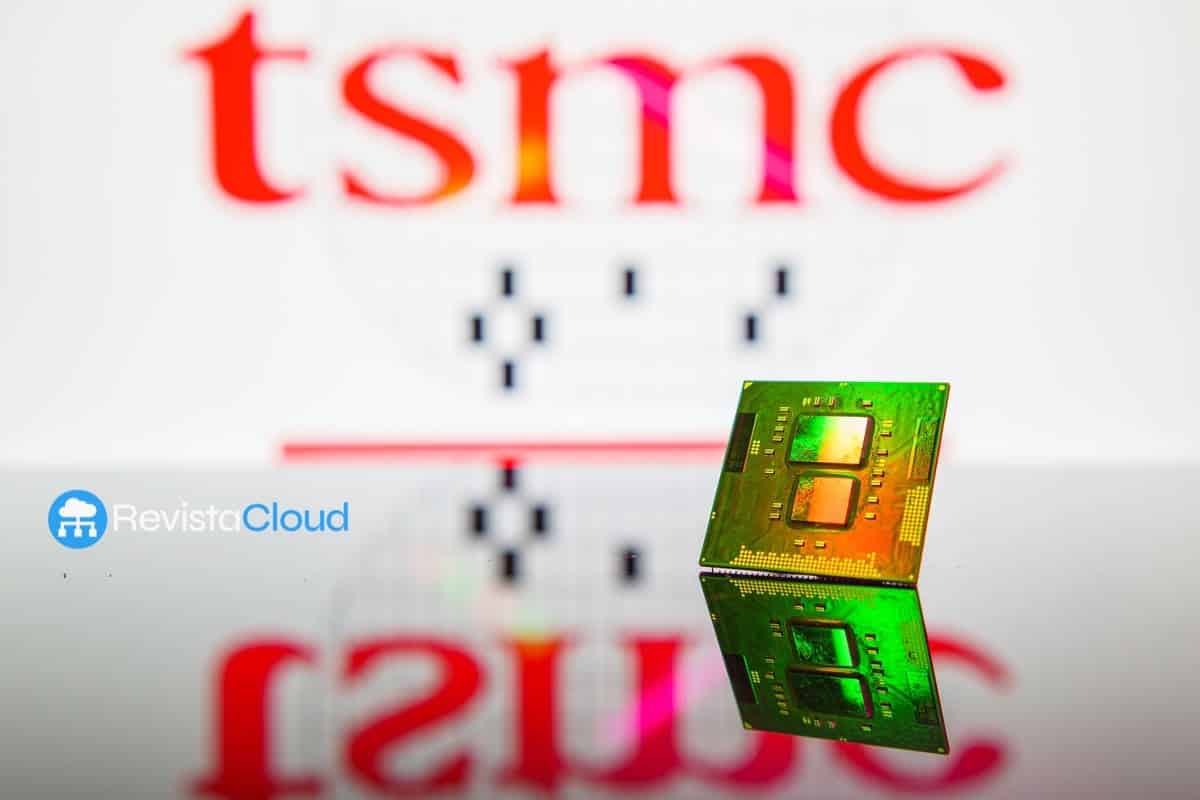The Taiwanese semiconductor giant solidifies its leadership in the race for the most advanced chips while ramping up production for giants like NVIDIA and Apple.
The Taiwan Semiconductor Manufacturing Company (TSMC) has crossed a significant technological barrier in the manufacturing of next-generation chips: its 2-nanometer (2 nm) process has achieved a yield rate exceeding 90%, a key milestone marking the beginning of mass production for memory applications. According to reports from Taiwanese media, this figure represents a substantial improvement over the previously estimated 70%, reinforcing its position as a leader in cutting-edge semiconductor technology.
The yield rate—which indicates the percentage of functional chips in each silicon wafer—is a critical factor for the profitability and commercial viability of each technology node. Achieving over 90% in such an advanced node anticipates a smooth transition to large-scale production, expected to commence before the end of 2025 at multiple TSMC factories.
Arizona at Capacity
Simultaneously, TSMC’s manufacturing facility in Arizona, USA, which currently produces chips under the N4 node (the commercial designation for 5 nm and 4 nm technologies), is on the verge of reaching its maximum operational capacity. Reports indicate it is producing around 15,000 12-inch wafers per month, with plans to ramp up to 24,000, its design peak.
This center, which already serves high-profile clients like Apple, NVIDIA, Qualcomm, AMD, and Broadcom, will be responsible for manufacturing AI chips for NVIDIA, currently in the process validation stage. These AI components are expected to enter mass production before the year ends, according to industry sources.
Higher Chip Prices in the U.S.: A New Reality?
The surge in demand has prompted TSMC to consider raising chip prices by up to 30% for those manufactured in the United States. The reasons point to both the high operational costs of production in the U.S. and the full utilization of manufacturing capacity.
Experts like Nobunaga Chai from Cloud Express state that the Arizona facility is under tremendous pressure to meet orders, which could also influence pricing. Concurrently, this plant is viewed as a crucial component in the U.S. strategy of technological reshoring and semiconductor sovereignty, with significant geopolitical implications in the trade dispute with China.
Advancements Benefiting the Entire Supply Chain
The progress in the 2 nm node is also benefiting suppliers of critical tools for chip production. Kinik Company and Phoenix Silicon International (PSI) have experienced a strong uptick in demand for diamond discs used in chemical-mechanical planarization (CMP), an essential stage to achieve smooth and clean silicon surfaces.
Kinik, which commands a 70% market share for discs for the 3 nm node, has ramped up its production to 50,000 discs per month, anticipating increased activity in 2 nm. This phenomenon is interpreted as an indirect indicator that TSMC is accelerating preparations to scale this technologically disruptive node.
Furthermore, the Taiwanese foundry reportedly received up to four times more tape-out requests—the final stage of chip design—for its 2 nm node compared to the 5 nm node, reflecting growing client interest in this technological leap.
Samsung Lagging Behind
Meanwhile, its main competitor, Samsung Foundry, is still in the testing phase with its SF2 node based on 2 nm GAA technology. Leaks from South Korea indicate that current yields have barely surpassed 40%, putting the South Korean firm significantly behind TSMC.
In light of this, Samsung is reportedly trying to attract major clients like NVIDIA and Qualcomm, especially in light of rumors about the high prices TSMC is charging its strategic customers.
Future Outlook: 1.4 nm on the Horizon
TSMC is already looking ahead. In early April, internal sources revealed that the company is preparing its next venture: a 1.4 nm node, which will be developed at the “P2” plant in Baoshan, although commercialization is not expected until 2028.
With these advancements, TSMC not only consolidates its dominance at the cutting edge of semiconductor technology but also positions itself as the key player in the future AI-driven economy, at a time when the demand for specialized chips is exponentially rising across all sectors.
References: wccftech and techpowerup

